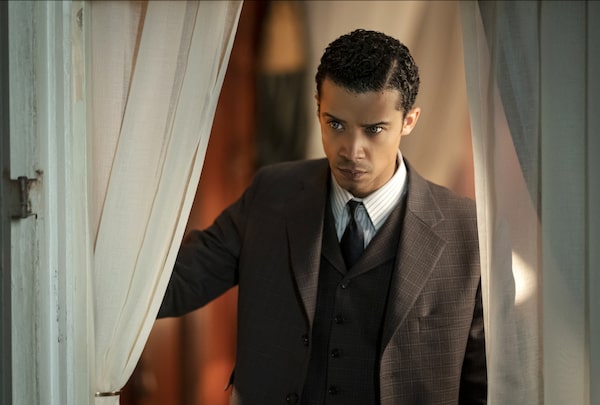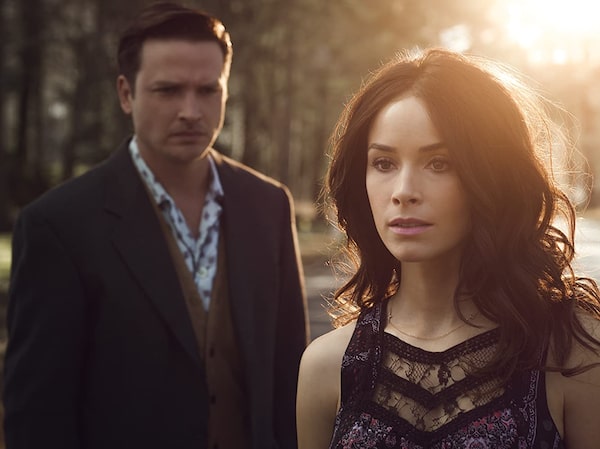
Jacob Anderson in Interview with the Vampire.Courtesy of AMC
According to Rotten Tomatoes, I’m a “Top Critic” and the site defines that as this: “Top Critic is a designation created to distinguish Tomatometer-approved critics who excel at their craft. Critics selected are well-established, influential, and prolific; they are, in a sense, the cream of the crop.” Jeez Louise, that’s flattering.
Sometimes in this job, a reader writes to thank me for a recommendation, or for the pleasure of reading what I wrote, even if they have no intention of watching what I wrote about. That’s the best flattery. Most people are nice, I find. But there’s another side to being a critic in Canada.
Occasionally, when l’m asked what being a critic means, I tell a particular story. The background is my daily routine. I screen, research, write, then file to the paper around 4 p.m. Then, if I can, I head straight to the gym or Pilates, run laps or kick a soccer ball around for an hour. Around 5 p.m., the column has been through the editing system and sometimes there are queries or suggestions. These I often handle on the phone, sometimes in a coffee shop. On this particular day, I was having a glass of wine in a bar, sitting near the entrance. Now, you know the way you realize people are whispering about you? Me too. A couple at the bar, boyfriend/girlfriend probably, were whispering and as they left, the guy pointed at me and snarled, “You John Doyle?”
“Yes, I am,” I replied cheerfully. “You’re [two expletives],” he said. Me: “Well I’m not the one calling somebody names in a bar, am I?” He then suggested I have intercourse with myself. Me: “Dream on, my friend.” The girlfriend tugged on his arm and said, “Let’s just go.” Me (to her): “He looks like a catch.” She replied with the two expletives her catch had used. Me: “What I said to him.”
They left and there was a brief silence. I looked at the people sitting up at the bar. Some smiles and a smattering of applause. Now, I once told this story to a friend in the theatre world. She suggested it was the opening scene for a play. I replied I probably had more interesting stories for a play.
It’s the smattering of applause that’s the important detail. A smattering. You don’t do this job to be liked. You have influence, but affection isn’t guaranteed. Even inside a newspaper, the arts critic’s role raises suspicions. Some people who manage the news coverage, business and sports, have no patience with culture. Made-up stories don’t interest them because they deal with true stories every day. Nothing could possibly be as fascinating as the news. They’re baffled by art, performance, fiction.
But readers aren’t. During the COVID lockdowns, there was only television and I sure felt useful. Readers wanted more and more recommendations to see them through. By the way, the series that drew the most gratitude was Rectify (all four seasons now on Amazon Prime Video). The thank-you’s came in. And that’s the relationship that matters.

Aden Young and Abigail Spencer in Rectify.Gran Via Productions
The relationship with the TV industry is very different. I tell journalism students who want to be reviewers, never imagine you are part of it. You must be independent. This isn’t difficult if you stay away from industry events and parties. It’s just that some in Canadian TV want to get close, to express grievance or fury at a negative review, as I imagine that guy in the bar was doing.
A few years ago, I was in a movie, Love in the Sixth (it’s on Amazon Prime Video), a small independent film in which I played a version of myself. There was a fundraiser event to help finish and promote it, an occasion organized like a late-night talk show. When I was being interviewed by the host, who was the movie’s director, the stage was loudly and rudely invaded by a guy from the CBC show Michael: Tuesdays and Thursdays, who berated me, swore and cursed me. It ruined the entire evening for everyone, but he didn’t care. I’d given the show a negative review – I stand behind that – and he was furious. Sometimes actors are as vicious as they are needy.
Don’t even get me started about the CBC legal drama This Is Wonderland. I praised it: “It’s got a zany, entertaining lilt and a sharper bite than any American network series that covers similar ground.” But I didn’t like it enough or write about it often enough. When it was cancelled, I blamed its small audience on “high-octane overacting” indulged by the show’s creator, playwright George F. Walker. The series featured many Canadian actors who resented the cancellation and blamed me, not CBC executives. They told me so. One of our most distinguished actors informed me that critics ruin lives.
Hate comes with the territory, yet the territory is flourishing, just not so much in Canada. Writing about television is now a vital part of the cultural dialogue because television storytelling matters for its psychological insights and sociological observation. It’s stating the obvious to say that the shows from the first period of this Golden Age of TV – The Sopranos, Breaking Bad, Mad Men for instance – are worthy of sustained and searching critique.
The current age of excellence didn’t end with those mostly male-centric series. There has been a cultural shift and drama focused on women arrived with a searing kind of heft. From Natasha Lyonne’s Russian Doll on Netflix to the adaptation of Sally Rooney’s Normal People (CBC Gem in Canada), to Netflix’s drama Unbelievable, a fiercely feminist look the police procedural, to the gorgeous vitality of The Queen’s Gambit (Netflix), the idea that prestige TV is about male angst has been demolished.
It’s a pleasure to write about such series, and sometimes what the critic is doing is less evaluation than it is giving the reader the context to shape their own evaluation. But, you might say, isn’t the critic a relic of the preinternet era? These days, anyone can broadcast their reviews and criticism to anyone else. Well, it’s the independence of the traditional critic that matters. If the review or opinion emanates from me at The Globe and Mail, you know it’s not from a fan site, nor was it paid for. I’ve never taken a penny from any broadcaster anywhere, for anything.
What you, the reader, pays for is independence and insight, and I am rewarded by your loyalty, feedback and, often, your suggestions on shows I should watch and review. Even if you disagree with the designation “Top Critic” your fidelity is noted, so thank you.
Airing/streaming this weekend – Nothing Compares (Sunday, Crave 10 p.m., and streams Crave) is Irish filmmaker Kathryn Ferguson’s powerful, intimate look at the turbulent years in the career of singer Sinead O’Connor. Her story is extraordinary, from a bleak childhood to early stardom to enormous controversy. Raw and poignant, it’s about O’Connor’s amazing voice and the trouble it caused.
Anne Rice’s Interview with the Vampire (Sunday, AMC, 10 p.m., streams AMC+) is a seven-episode “contemporary reinvention” of the famous Anne Rice novel. That is, it aims to establish the slow Southern Gothic wit and sensuality of the novel. It does. Louis (Jacob Anderson), a young Black man in New Orleans during the early 1900s, ends up becoming a vampire when Lestat de Lioncourt (Sam Reid) offers it to him as a way of escaping racism and strife. Lurid, sombre and visually eye-popping, it’s smart sexy-horror escapism.